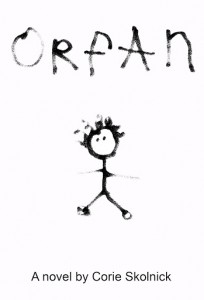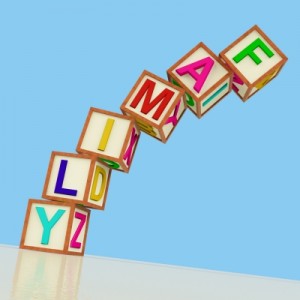AP Resistance to Search and Reunion
Hey Adopted Girl …
I would like to hear from Corie on what specific things parents can do to prevent the adoption fog in the first place, if there is such a thing.
– Sister LD Blogger
Good call, Lynn Grubb. Let’s come up with some actionable times and welcome back Corie Skolnick! [Prepare to have your mind blown]
When APs are resistant to The Search
Laura – Some (not all!) adoptive parents resist their adoptee’s need for knowledge. Whether it’s passive aggressive or outright, they are reluctant to show support for their adoptee’s desire to search.
My adoptive mom was in fact quite supportive and even helped me with my search to find my first mom. Even so, I felt like, Hey you had 18 years to get comfortable with this, you’re on your own. My search is about my emotions, my reactions. I had so much going on inside me personally, I had little left over to help her. And I think that’s okay. I think search should be about the adoptee.
Why is it do you think there’s push back from some adoptive parents?
Corie – Wow. This is a tricky one and surely I’m going to piss somebody off, but, here goes.
 The adoptive parents that I’ve known who actively or passively resisted their kid’s reunion were by and large either uninformed or somehow damaged. Not all parents are psychologically sophisticated, so of course that’s true for adoptive parents too. What I mean by this is that what they don’t know about child development and their own lack of autonomy can promote enormous insecurity when the adoptee hits the normal adolescent stage of identity formation.
The adoptive parents that I’ve known who actively or passively resisted their kid’s reunion were by and large either uninformed or somehow damaged. Not all parents are psychologically sophisticated, so of course that’s true for adoptive parents too. What I mean by this is that what they don’t know about child development and their own lack of autonomy can promote enormous insecurity when the adoptee hits the normal adolescent stage of identity formation.
Adolescence is a tough stage in “ideal” family circumstances, but adoptees are coping with issues that complicate the process of identity formation. In short, just when a kid is psychologically programmed to differentiate from their parents and become an individual, they get slammed hard with the truth of their origins.
They don’t really KNOW who they are differentiating from. And they do need to know.
If an adoptive parent doesn’t understand that an adoptee’s curiosity “to know” is completely normal and to be expected, they can take it personally and feel rejected or fearful that they will lose their “child.” Imagine how much worse that insecurity is going to be if the parent never achieved personal autonomy.
Adults that fail to individuate will often experience this normal developmental stage in their kids as hostility (or, worse, a lack of gratitude for being rescued). If the situation is further complicated by a history of infertility, (and the parent never resolved their grief over that), it’s quite common for all those feelings of insecurity and fear and anger to be magnified.
It takes a really healthy and informed parent to encourage a kid’s autonomous identity formation.
Laura — So what you’re saying is, adoptive parents who may have neglected nurturing their own self-worth, and who are still holding onto past traumas such as infertility–can end up passing adoption fog-thinking onto their adoptee.
It’s almost as if adoptive parents, actually all parents, must work through their own shit, or they risk passing on a legacy of pain, secrecy and denial to their children. And while the teen years can be trying on even the most patient and well-adjusted parent, helping see an adoptee through adolescence can be even more difficult.
Unless the adoption is open in some way, adoptees lack genetic mirroring which can be vitally important in helping the adoptee find his or her own sense of self.
From my own experience, this unknowing was particularly tough. For example, I had body image issues (thanks to years of dance study). I starved myself, I exercised too much, I was constantly berating myself for being fat and lazy. I had no idea whether I was naturally thin or prone to being overweight. It’s these types of issues that with awareness, adoptive parents can take extra steps to help their adoptee find their place in the world.
* * * * *
Buy Corie’s amazing book, ORFAN, today–available on Amazon.
Read more of my recent conversations with Corie:
- Part 1: Adoption Reunion and Resistance to Change
- Part 2: Clearing the Adoption Fog = Change. Deal with it.

About Corie Skolnick – Born in Oak Park, Illinois, and raised on Chicago’s south side, Corie Skolnick has lived her entire adult life in Southern California. She is a California licensed marriage and family therapist and a university psychology instructor.
Coffee image–bplanet, Family blocks image–Stuart Miles, and Swan Mirror Image–Dr Joseph Valks, all from freedigitalphotos.net.







Thank you for sharing and helping me feel less alone…and not wrong or bad for finding my birth family. You have just described my adoptive Mom. I am guessing at 73 she is not going to change, even if she would realize by some miracle that her berating me and such as I walk through my reunion, is hateful and needs to stop. Thankfully I am 48 and can see through it; however she is doing untold damage to other family members, especially the children involved. Sadly, it has come down to them disowning me.
Ree, you are DEFINITELY NOT WRONG OR BAD! I'm glad you figured that out.
Corie: You made some good points, but you didn't relay the whole situation with adoptive parents who don't want the adopted child to find and have a relationship with their natural parents. There are many adoptive parents who don't WANT to work on their "shit". My adoptive mother is so immature, bitter and revengeful (along with abusive) that she doesn't even SEE she has shit she needed and still needs to work on even in her 70's. She has always blamed everyone else for everything, she feels she is never in the wrong about anything even though she is one of the rudest and uncompassionate person I have ever met. She is only happy when things go wrong for other people and she is laughing at them and she did this to me my whole life. Needless to say, I truly hate her and as screwed up as she was before she adopted me, adoptive parent entitlement syndrome only made her worse. Some infertiles just would of been crappy parents, no matter what. even if they had their own kid and that is another thing so many of them don't see. And don't want too.
Anonymous, you are right. I barely touched this complex issue. Please stay tuned to this blog though. Laura is on a mission to make us all smarter and better and she's doing a great job. It's so hard to cover "the whole situation" in a single post. People get bored. A friend recently told me that the average reader wants 7 word sentences and three sentence paragraphs and no more than 250 words (1 page) total in any article. Anything beyond that is ignored. I guess Twitter has given us all short attention spans
It's fascinating to me, your reaction to your mom supporting your search for your birth mom. It emphasizes the notion that the adoptee is the focus, the one in the driver's seat, and that the adoptive mom shouldn't be too directive or insert herself without an express invitation.
I'm reading Corie's novel now. You're right — it is amazing. She's one smart therapist and talented storyteller.
Lori,
Yes, the adoptee must be in the driver's seat, whether he wants to search or not. When and how. Let me know when you've finished ORFAN so we can discuss!
Laura
This is an excellent description of how an adoptee's search process can touch unfinished and wounded places in adoptive parents. Thanks for sharing!
Thanks so much, Karen — yes, you're totally right, the search DOES impact a wounded adoptive parent, all the more reason they need to process before this happens!
This relates very closely to what I am experiencing with my birthson and his adoptive parents at the moment. While on the surface the aparents tried to appear supportive, in the reality of the situation they really have been completely unsupportive behind the scene. The adoptive mom has many unresolved issues from 2 failed marriages to the infertility. They (Her third husband) do not want him to grow up and at the age of 27 he is closer in age to a 16 year old. Her insecurity of losing him (to me, I suppose) has her calling him many times every day. This is not normal behavior, for a 68 year old women to call a young man daily. And I know it feeds into his guilt and loyalty toward her. I hope someday he will be able to live without the fog and get to be his own person. Wished someone would recommend a good book that I could share with him, specifically for young men (adoptees).
Sandy, although Laura's book, Adopted Reality, is obviously by a female adoptee, she does a fabulous job of sharing the emotional storm through which a young person must travel on this road to reunion. I highly recommend it. (Have you read it yet?)
Another well written adoptee memoir is Becoming Patrick by Patrick McMahon, although his experiences are those of a somewhat older person.
Hello Corie, Yes, it is an excellent book. I'm going to be reading Laura's book again and because I have it on my kindle I will have to buy a copy, but it is worth sharing with him as well. Also, I do have Patrick McMahon's book, so I will give that one to my birthson, (first son)…my son. Thank you for your recommendations. Those are the best I have read this far in my journey for the truth. Thanks.
I could have written this, the differences are that my son is almost 23 and still lives at home. Our communication has been nil for almost two years. His mother will rage at him, confiscate his property, and sends him texts several times an hour when they happen to be apart; calls several times an hour; attends every event; constantly updates FB including tagging his name (I finally couldn't stand the triggering comments about being the best mother in the universe and "no other mother loves my son more!"); working together; volunteering together; attending church and other functions together. His first and only gf broke up with him the year before because she got sick of his mother. His mother finally yelled at him that she prayed to God everyday to break them up, and it happened. He told me two years ago that his goal in life is to make his mother happy and without that goal he is nothing. What can I do? I can't do anything, so I stepped back. I let him know every now and then via text (only form of communication I have with him) that I love him. I have no idea how he's doing, though. But I just can't add to the pressure he's under. He needs to stay mentally, emotionally, and physically healthy.
Ohhhh I am so sorry, "no other mother loves my son more" … geez, this adoptive mom has issues. I am so sorry. And I can totally see how this would be a trigger for you! You are right to step back, I think–but to be there, in his life in case it comes crashing down around him. Yes, protecting his mental, emotional and physical health should be your priority–as his mother! I applaud you for having the strength to keep this in perspective. Thanks so much for sharing!
Laura
Hi there, pretty adopted girl! Thanks for another informative blog post. I experienced this lack of autonomy growing up as being over-protected with an emphasis on being kept dependent. When I finally moved out, I had to ask other people how to do things like balance my checkbook, do laundry, manage money, etc. Everything was done for me. My mother's purpose in life was being a perfect wife and mother, which I benefited from — no doubt — however, I experience her as someone who lives through other people and not as an independent-thinker and doer. Even now as a middle aged woman, my mother is still trying to find ways to control and micro-manage my life. And reunion? I was too scared to even tell her I found my birth mom. (I made my husband do it!). She took it well on the surface, but I know deep down she doesn't like it. She likes to mention my brother (who of course, has no interest in searching).
Hey there! Ah ha, I've heard this before: the adoptee who is "over-protected with an emphasis on being kept dependent." When the adoptee finally sets out on her own, she is compared to the sibling who has no interest in searching. Unfortunately, this feels like a familiar story. –Laura
Well, you certainly got my attention with your words, "Hey Adopted Girl." I can't look at any other way in my particular circumstances than my adoptive mother was "damaged." My adoptive mother was one of five sisters and one brother. All of them were able to conceive many children, which was very important in regards to "their" religious beliefs. One aunt in particular adopted two more newborns after giving birth to at least five children. My adoptive mother was only able to have one of her own because of infertility issues I am guessing. This same aunt and I still recall an unsettling story when I was a preteen. My aunt curiously asked me, "At what age did your mom tell you were adopted?" Just as I was going to respond; mom glared at her. As my aunt started to explain herself and say it was because she wanted to know when to tell her own two young adopted daughters, my mother gave her a look that would kill. All this as I was standing there trying to make some sense out of my mother's embarrassing response to her sister's harmless question. But it was experiences like this where my adoptive mother made it clear that she wasn't open into ever talking or listening to my feelings about being adopted. I am all grown-up with daughters of my own now and still don't know if this is what was behind all her confusing messages, "If an adoptive parent doesn’t understand that an adoptee’s curiosity “to know” is completely normal and to be expected, they can take it personally and feel rejected or fearful that they will lose their “child.”
Thanks so much, JoAnne. I am continually surprised at how firmly adoptive parents hold onto the idea that their adoptee is "theirs," no one else's. We don't own people, we just don't. Yes, as adoptees we learn to read-between-the-lines, don't we? From you adoptive mother's look, it was clear that adoption was not to be discussed. You could know you were adopted, and that's it. This notion just screams "absurdity" to me.
I read this post yesterday and then Deanna's post on adoptee restoration today (Monday)…can you say trigger? I don't know if I want to throw up or if I might be having a heart attack due to chest pains! Funny how easy it is to spot a physical response now to emotional stress.
I was especially thinking about what my adoptive father always seems to say to me (still) that this kind of post triggers. "Your mother wanted a baby so much."
Now I have a relationship with my original father. I had one with my original mother, but my parents possessiveness and pressure led me to let go of that relationship with her. I adore my original father and he loves me. We are two peas in a pod. That is just biology…why is it so crazy that it should be this way.
Now, I would like to turn back to my original mother, too, but it seems so hard ….I know it is for me to figure out, but I so wish something about this could be easy like my relationship with me and my dad.
It's so terrible when you know you would just be 100 percent ok to never talk to the people who raised you again…that is really sad…but true. They are not even such bad people….I just feel no connection to them, and yet they are supposed to be my family.
Thank God for a good therapist!!!
((Lee))
Oh, I'm so sorry … I didn't mean for it to be a trigger for you! This is so tough, and I want to help–my first thought is that you must be true to yourself. If you want a relationship with someone, there is nothing wrong with that. You are an adult now and you are not obliged to be the baby your mother wanted so much. That's not your responsibility anymore. In fact, it NEVER was.
Hugs.
Laura
Very interesting to learn about adoptee issues with regard to search and reunion. Why do a-parents overprotect and keep the adoptee immature? To ensure that they don't grow up and search? My adoptee-son's a-mom died when he was 18 and the a-sis told me that she told mom that she'd protect him(protect him?). I think that the a-grandmother and a-aunt(god mother to a mock baptism – I baptised him when he was a month old) are overprotecting him as well. I noticed in his personal relationships he had never married. Why do adoptees push away people? Seems they grab defeat from the jaws of victory in my case after he had been searching for 8 years. (Relinquishment = voluntarily give away. I was coerced so that term doesn't apply)